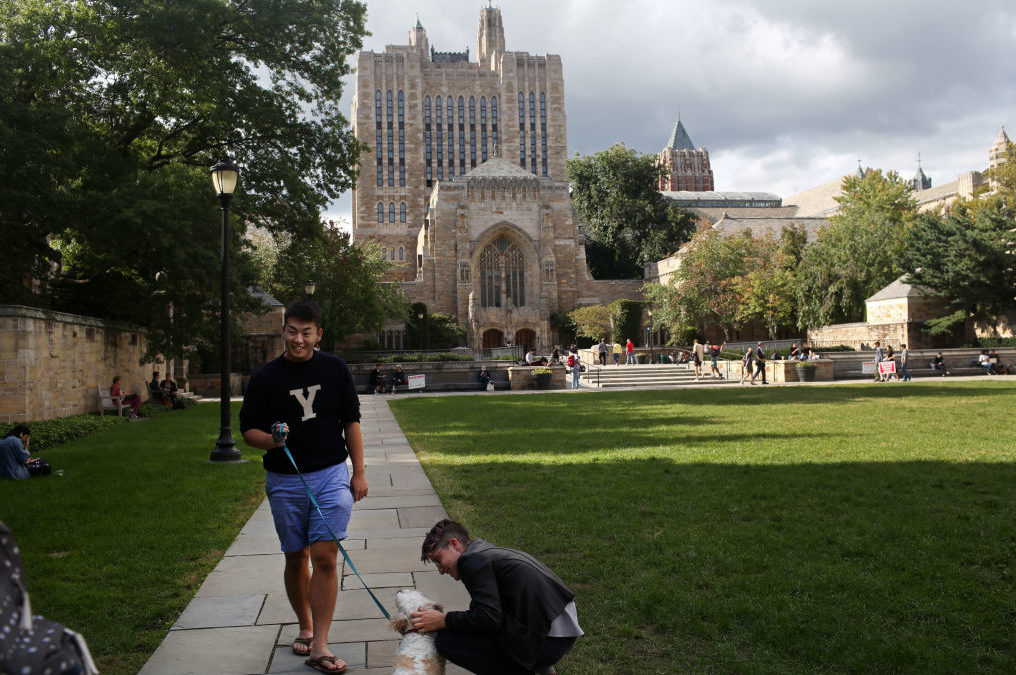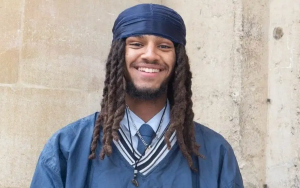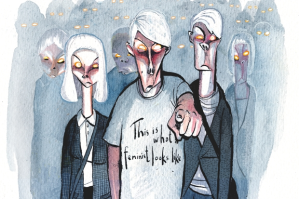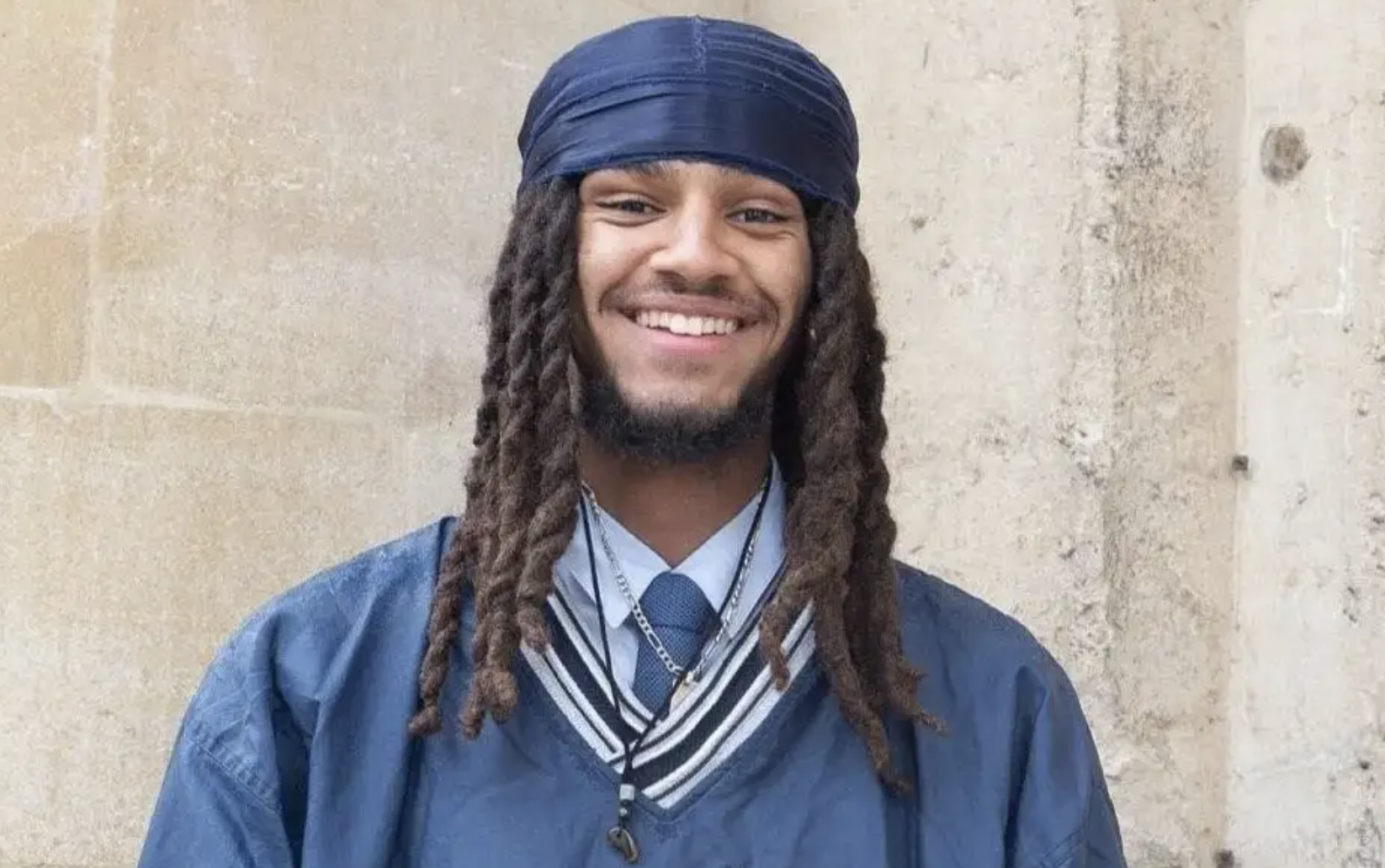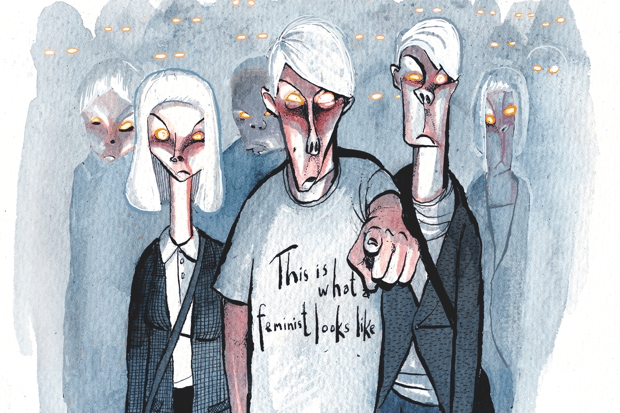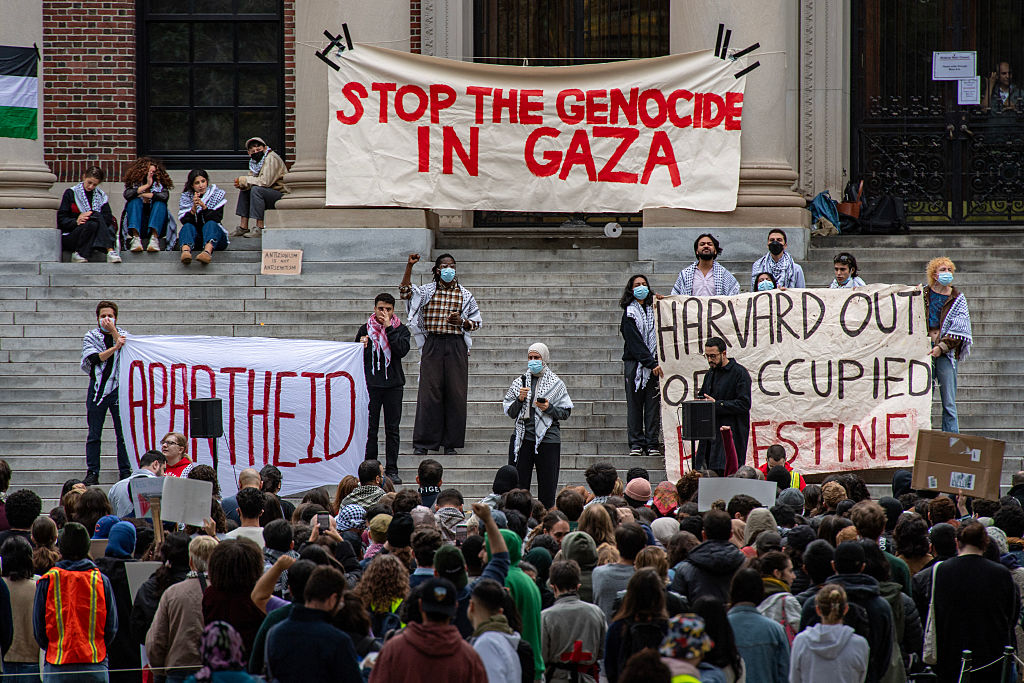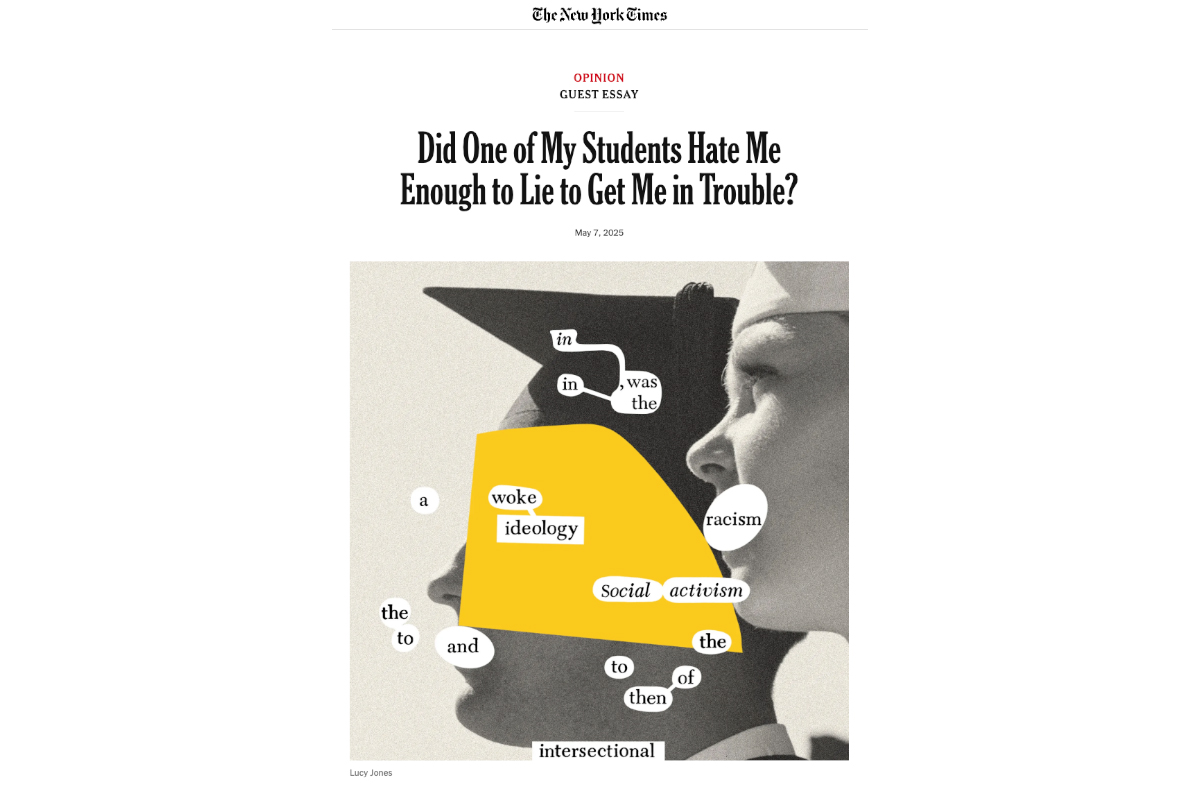This article is in
The Spectator’s October 2019 US edition. Subscribe here.
America’s colleges and universities are in crisis. According to the latest data released by the National Student Clearinghouse Research Center, enrollment is down 1.7 percent compared with 2018, following a drop of 1.8 percent the previous year. If you contrast 2019 with 2017, that’s more than half a million fewer students.
The brunt of this decline is being felt in New England, the center of America’s higher-education sector. In eastern Massachusetts, eight colleges have either closed or merged in the past four years, while in Vermont three colleges have gone to the wall in 2019 alone. Most experts think things will get a good deal worse. Clayton Christensen, a Harvard Business School professor, predicts that up to 50 percent of the country’s colleges and universities will go bankrupt in the next 10 to 15 years.
The causes are multifactorial, as you’d expect. There are fewer 18-year-olds than there were a decade ago, thanks to declining birth rates. The cost of attending college has increased by nearly 400 percent in the past 30 years, while median household incomes have remained largely stagnant. The boost in earnings associated with a university degree — the ‘college premium’ — is declining. And the number of higher-ed institutions has grown too quickly.
An additional factor is surely the climate of Maoist intolerance that now prevails at most colleges and universities. I’m not just talking about ‘safe spaces’, ‘trigger warnings’ and ‘bias reporting hotlines’, all now standard features of American campus life, but the punishment beatings regularly meted out to anyone who dissents from progressive orthodoxy. Scarcely a month passes without some distinguished professor being targeted for defenestration by a left-wing outrage mob, often led by their Marxist colleagues.
To see the effect of these episodes on the bottom line, you have only to look at the declining enrollments at America’s most liberal institutions — an illustration of what is fast becoming an iron rule: go woke, go broke. Evergreen State College saw a 20 percent drop in applications last year, following the mobbing of Bret Weinstein, a biology professor who refused to go along with a ‘Day of Action’ in which white people were expected to absent themselves from campus to show ‘solidarity’ with students of color.
Some critics of the ideological tenor of American higher education have welcomed the economic difficulties facing the sector and urged Republican lawmakers to slash state aid to accelerate its decline. After all, why should taxpayers in red states subsidize what have effectively become left-wing madrassas? Last month, Mike J. Dunleavy, the Republican governor of Alaska, used his budget veto to reduce annual funding for the state’s universities from $327 million to $197 million, a cut of 41 percent.
Others believe the fight for the soul of colleges and universities is not yet lost, and urge academics to make a stand on behalf of viewpoint diversity and intellectual freedom. One such is Anthony Kronman, Sterling Professor of Law at Yale and a former dean of Yale Law School. He’s just published a book called The Assault on American Excellence, in which he makes a passionate case in defense of elite educational institutions. This isn’t the standard argument citing the positive impact of the higher education sector on the economy (particularly scientific research), but a more intellectually ambitious one that relies on Alexis de Tocqueville.
Broadly speaking, Tocqueville was sympathetic to the democratic experiment unfolding in America in the mid-19th century. But he worried that some of the aristocratic virtues of Europe’s ancien régime would be lost. In particular, he was concerned about two unintended consequences of the egalitarian philosophy that underpins the principle of ‘one man, one vote’: that it would undermine the concept of human greatness, discouraging people from striving for excellence in the arts and sciences, and that it would leave the individual at the mercy of the tyranny of the majority.
According to Kronman, this is where America’s best colleges and universities come in. Like Tocqueville, he has no quarrel with the prevalence of the egalitarian ideal when it comes to politics and the law. But he regards institutions such as Yale as an essential counterweight to the excesses of democracy. In Kronman’s words, they are ‘islands of excellence in a democratic sea’.
What’s gone wrong in the Ivy League and the best state universities, Kronman argues, is that they’ve succumbed to ‘the passion for equality’. He distinguishes between the campus radicalism of the 1960s, which focused on the rigorous application of democratic ideals to politics and the law, and the ‘Social Justice’ movement of today, which seeks to extend that egalitarian spirit to higher education.
Curiously, I made many of the same Tocquevillian arguments in How to Lose Friends & Alienate People, my 2001 memoir about working as an editor at Vanity Fair, only the institution I was defending as a bulwark against the ‘effervescence of democratic negation’, to use Oliver Wendell Holmes’s phrase, was the fourth estate. As Kronman laments the spread of spirit-sapping egalitarianism to the academy, I regretted its corruption of the media, and contrasted the liberal pantywaists I encountered in New York in the mid-1990s with the bulldog-like newspapermen immortalized in films like His Girl Friday and It Happened One Night.
I will watch with interest what happens to Kronman at Yale this semester.
If his left-wing colleagues turn on him with the same ferocity they’ve directed at other dissenters, that will suggest his optimism is misplaced. It could well be too late to save the academy, just as it is too late to do anything about the debasement of the mainstream media.
This article is in The Spectator’s October 2019 US edition. Subscribe here.



